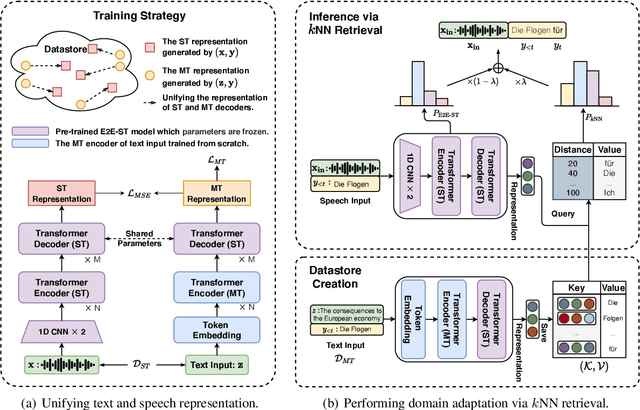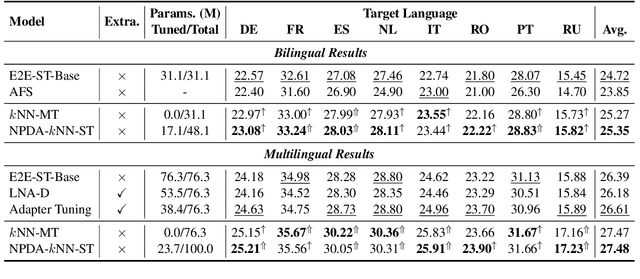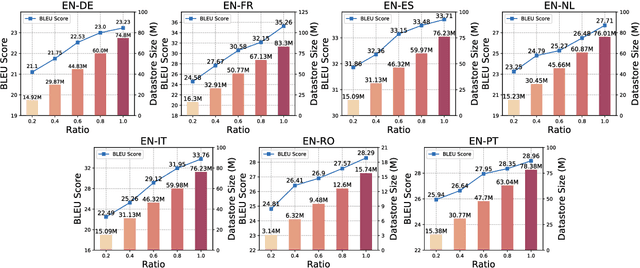Non-Parametric Domain Adaptation for End-to-End Speech Translation
Paper and Code
May 27, 2022



End-to-End Speech Translation (E2E-ST) has received increasing attention due to the potential of its less error propagation, lower latency, and fewer parameters. However, the effectiveness of neural-based approaches to this task is severely limited by the available training corpus, especially for domain adaptation where in-domain triplet training data is scarce or nonexistent. In this paper, we propose a novel non-parametric method that leverages domain-specific text translation corpus to achieve domain adaptation for the E2E-ST system. To this end, we first incorporate an additional encoder into the pre-trained E2E-ST model to realize text translation modelling, and then unify the decoder's output representation for text and speech translation tasks by reducing the correspondent representation mismatch in available triplet training data. During domain adaptation, a k-nearest-neighbor (kNN) classifier is introduced to produce the final translation distribution using the external datastore built by the domain-specific text translation corpus, while the universal output representation is adopted to perform a similarity search. Experiments on the Europarl-ST benchmark demonstrate that when in-domain text translation data is involved only, our proposed approach significantly improves baseline by 12.82 BLEU on average in all translation directions, even outperforming the strong in-domain fine-tuning method.
 Add to Chrome
Add to Chrome Add to Firefox
Add to Firefox Add to Edge
Add to Edge